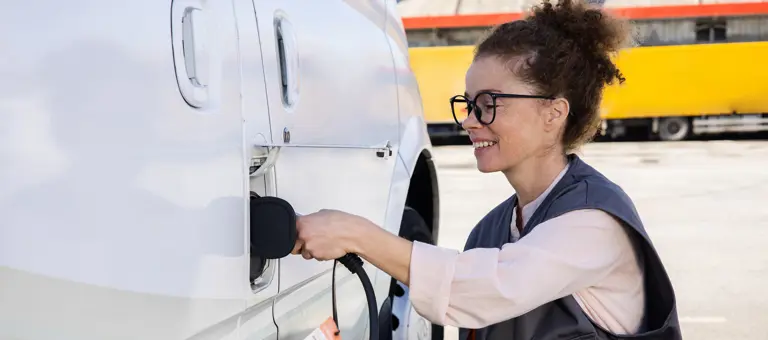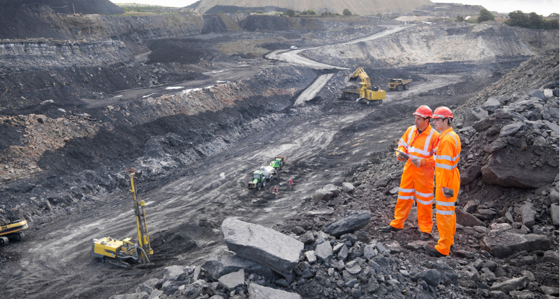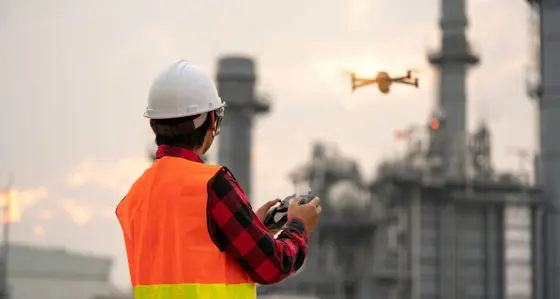
Powering a sustainable future - What the EU battery passport means for mining?
12 April 2023
With the global energy transition underway, demand for efficient batteries – to enable electric mobility, renewable energy storage, and industrial applications – is booming. For mining companies, this points to a prosperous future of exploring and mining, since critical minerals like lithium, cobalt, and copper form vital components of batteries.
While the world urgently needs these minerals to enable new green technologies and support the energy transition, mining them sometimes comes at a high price for our planet and its people. Extracting and refining raw materials can lead to land degradation, biodiversity loss, competition for water resources and environmental contamination. In addition, mining can adversely impact community wellbeing and livelihoods, and pose risks to worker health and safety. Currently, a lack of traceability across the supply and value chains makes it difficult for purchases to understand the true impact of the materials they source.
Now, new EU rules look to confront those challenges
As demand for batteries and their input materials grows, pressure is also rising to embed more sustainable, circular and transparent practices across the battery value chain. The European Union (EU) has been leading the charge on the regulatory front. In early March, the European Commission (EC) unveiled the proposed legislation for the Critical Raw Materials Act (CRMA). The CRMA aims to secure Europe’s supply of the raw materials needed for the energy transition, while making sure they are sourced, processed, manufactured and recycled in a responsible way. This will ensure that the benefits brought about by increased battery supply are not offset by the environmental or social damage of sourcing their components.
This latest legislation builds on the EC’s Batteries Regulation, proposed in December 2020 as an update to the existing Battery Directive 2006/66/EC, with a particular emphasis on lithium-ion batteries. As part of the updated regulatory framework, the EU plans to introduce a digital battery passport for industrial and automotive batteries with a capacity of 2kW hours or more.
In addition to containing technical information on the battery, the passport would also contain data on its materials provenance, manufacturing history and environmental and social performance, including a carbon footprint declaration and performance against child labour and human rights indices. It would create a system whereby batteries and the elements within them could be traced throughout the battery’s entire life cycle from their source, including at the upstream, mining stage, right through the supply chain to recycling and second life.
How will this impact the mining industry?
With the CRMA, which is in the process of being adopted by the EC, and battery passport policy efforts, the EU is taking important first steps towards a more resilient and encompassing battery supply chain. These are early days: the European Parliament and the Council must still formally adopt the new regulation before it can enter into force and replace the existing Batteries Directive from 2006. However, we can already foresee some of the implications it will have for mining companies.
In future, adhering to the EU’s criteria around supply chain transparency and standardisation will be a prerequisite to selling a battery within the bloc. Players who fail to comply with maximum carbon footprint levels for each battery type, for example, could find themselves excluded from operating in European markets.
Mining companies will need to act today to ensure they’re ready to meet tomorrow’s regulatory requirements. The EU represents a large and growing battery market, and original equipment manufacturers, especially automotive manufacturers, will want to preserve their ease of access to it. To do so, not only must they ensure their own operational compliance; they’ll need to work with supply chain partners who also adhere to the EU’s green criteria. If mining companies don’t take appropriate steps now, they could lose out to competitors who decided to embrace sustainable and transparent business practices faster.
There’s no doubt that metals and mining will be at the core of enabling the energy transition. But initiatives like the battery passport point to a paradigm shift: mining companies can no longer afford to consider social and environmental performance as an afterthought to techno-economic factors. The industry is coming under growing scrutiny to show it can meet stakeholders’ growing sustainability expectations. Those who fail to play their part in building a more sustainable and responsible value chain could soon find themselves excluded from important parts of it. This is an imperative that mining companies can’t afford to ignore, given the impact it would have on their operational, financial and technical performance.
Baringa is working with mining companies and battery manufacturers across their supply and value chains to help create more sustainable, circular, resilient and profitable operations. To find out how we can help accelerate your transition, contact Sara Lupo.
Related Insights

How can a digital supply chain drive resilience in the age of the digital energy transition?
Four key areas where we believe digital technologies have the greatest potential to transform the performance, profitability and resilience of supply chains navigating the energy transition.
Read more
What is the impact of Australia's carbon policy on the mining sector, and how can companies adapt?
As Australia strives to reduce its carbon emissions and transition towards a low-carbon economy, the mining industry has found itself at the centre of policy attention.
Read more
Digital transformation and decarbonisation in the energy sector
Energy leaders are using digital technologies and data to fast-track their journeys to decarbonisation.
Read more
Accelerating the energy transition with digital innovation
Let us help you find your best digital route through the energy transition.
Read moreIs digital and AI delivering what your business needs?
Digital and AI can solve your toughest challenges and elevate your business performance. But success isn’t always straightforward. Where can you unlock opportunity? And what does it take to set the foundation for lasting success?